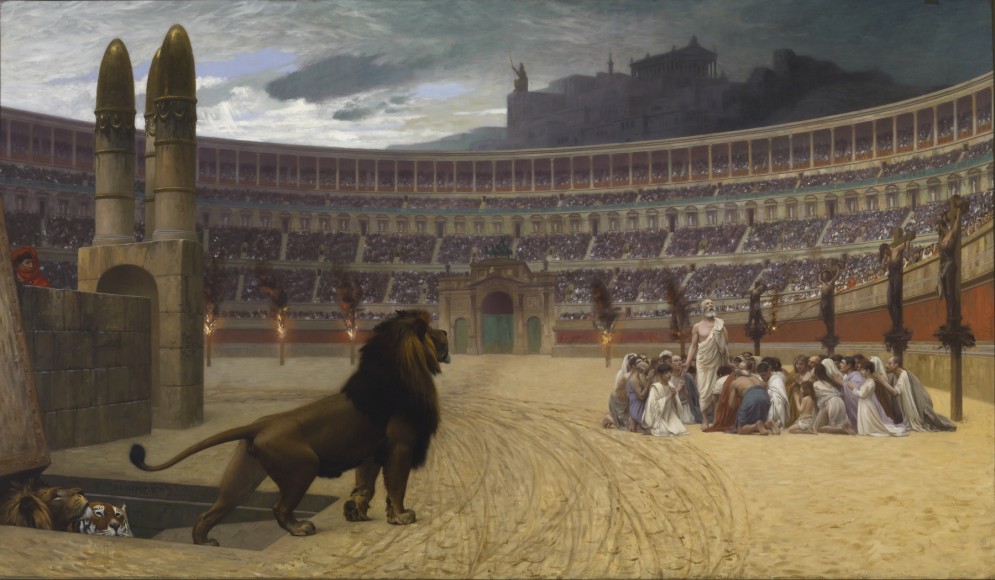Fear of God, piety, knowledge gathering, strength and resolution, diligent application. Our students have been practicing these steps since September. As parents and tutors we’ve seen them grow, as they learn a little bit more of what it means to humbly approach the learning process, to gather and absorb new information, to persevere when learning is difficult or boring, and to truly embrace what they know through application. And at Granite we’ve been emphasizing the sixth step all year through our theme, “Stand for Truth.”
Augustine says that the sixth step, before attaining wisdom itself, is to recognize that the truths one has embraced are worth standing up for. He says that the students on the verge of wisdom reach a point at which their pursuit of truth is so pure that they are compelled to acknowledge truth, regardless of the earthly consequences. He writes that this student will be “so single and so pure in heart, that he will not step aside from the truth, either for the sake of pleasing men or with a view to avoid any of the annoyances which beset this life.”
In one of my Omnibus classes this week, we discussed the persecution of Christians in the early church in Rome. I explained to students that the Christians of Rome were often martyred for refusing to burn even a pinch of incense to the image of Caesar. One of my students asked the poignant question, “Why would you die for something so small? Does it really matter?” This prompted what was possibly one of the most important conversations I had with my students all year. The martyrs of the early church were willing to die for something so seemingly small and insignificant because they understood that such a compromise was in fact supremely significant–burning incense to the image of Caesar would have been a clear statement that a human being deserved worship as a god; it would have been a direct denial of the truth indelibly stamped on their hearts.
A person who will not stand aside from truth for the sake of this world is the culmination of a Christian education. We want to graduate students who are so convinced of God’s truth that they cannot recant it for anything—not for a higher standing among their peers, not for a better grade from a college professor with a different worldview, not for a better position in their workplace, not even for the sake of avoiding persecution. Our hope is that the student educated at Granite would become so practiced in finding truth and diligently applying it that he cannot back down from what he knows to be true, even when the world pressures him to do so.
Augustine says, “Such a son ascends to wisdom which is the seventh and last step, and which he enjoys in peace and tranquility.” In other words, the student who is convinced of God’s truth can hold his ground on it without fear of the earthly consequences. Jesus said, “If you abide in my word, you are truly my disciples, and you will know the truth, and the truth will set you free.” The early Christian martyrs who refused to burn incense to Ceasar understood the Truth, and that truth freed them to gladly give up their lives for its sake. That’s wisdom!
That’s the student that we want to send out into the world at the end of a classical education. That’s what every part of a classical education is working towards, from memory work and question and answer flows, to Socratic discussion, debates, and thesis defenses. We want to produce young men and young women who not only stand for truth, but who do so for the right reasons, and who do so with confidence and peace.
Our prayer is that our students have been moved along in their journey towards wisdom during this academic year. But it’s important to remember that no amount of classical practices or liturgies will necessarily produce this; our students need to be transformed by the Holy Spirit. That is why it is our prayer that this has taken place and will continue to take place.
When Martin Luther gave his famous “Here I Stand” speech, he didn’t stop with, “Here I stand, I can do no other.” His closing words were, “God help me.” One of the prayers we’ve used throughout the year in chapel, also penned by Martin Luther, says, “Write into our hearts, by your Holy Spirit, whatever is abundantly found in scripture. Let us constantly keep it in mind, and allow it to become far more precious to us than our own lives, and all else that we cherish on earth.” That’s a hard prayer to pray, and one which none of us can pray sincerely without the aid of the Holy Spirit, who gives us such an understanding of truth that we are freed from attachment to this life.
May this continue to be the prayer of the Granite community–faculty, staff, parents, and students–even after this academic year and its theme have drawn to a close. May God help us to continue to guide our students down the path to true wisdom and freedom.
Aubry Myers is the Director of Classical Education at Granite Classical Tutorials.


